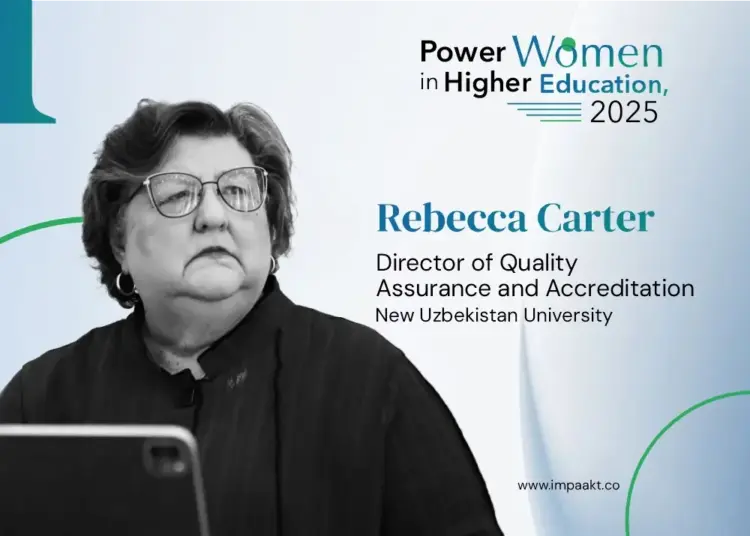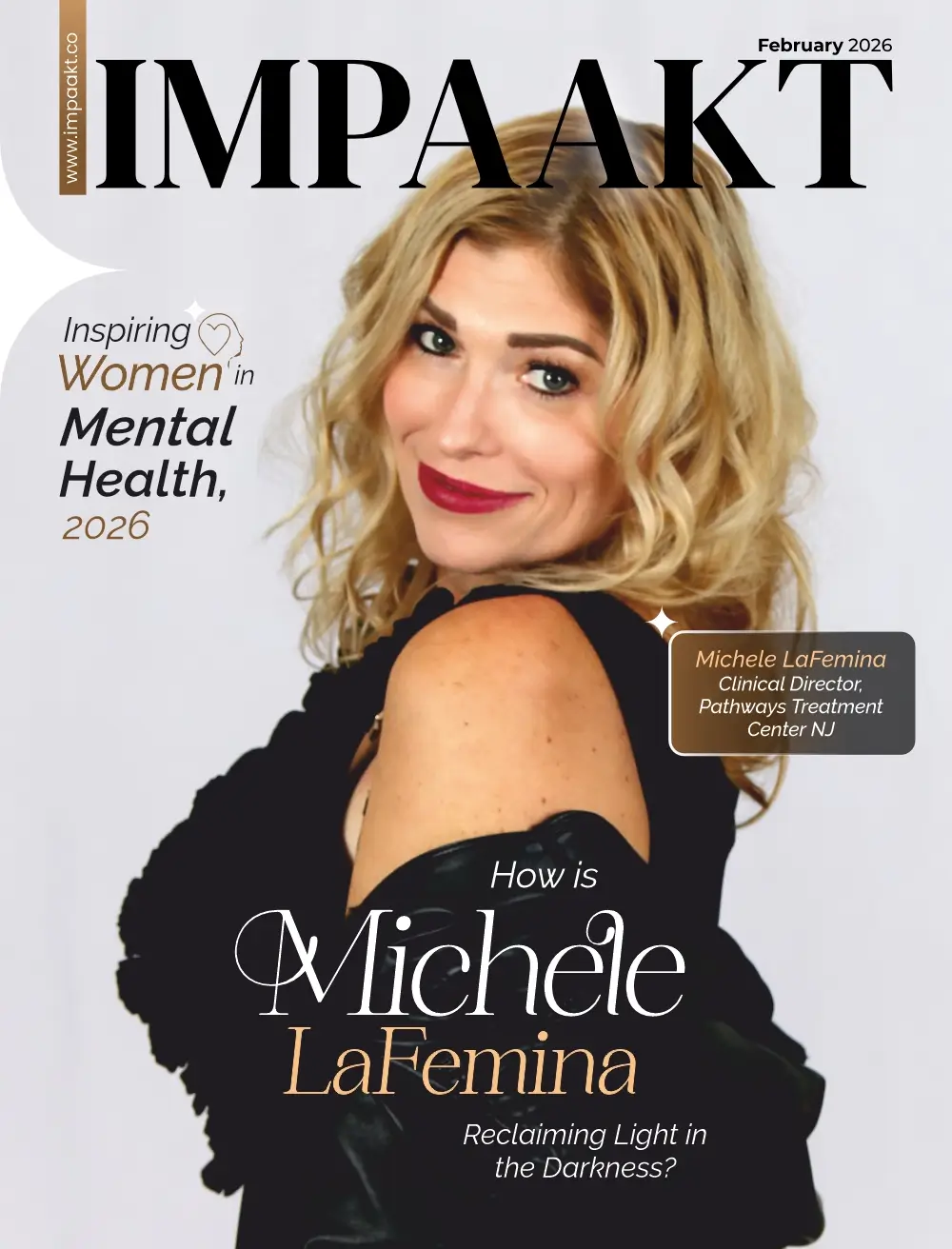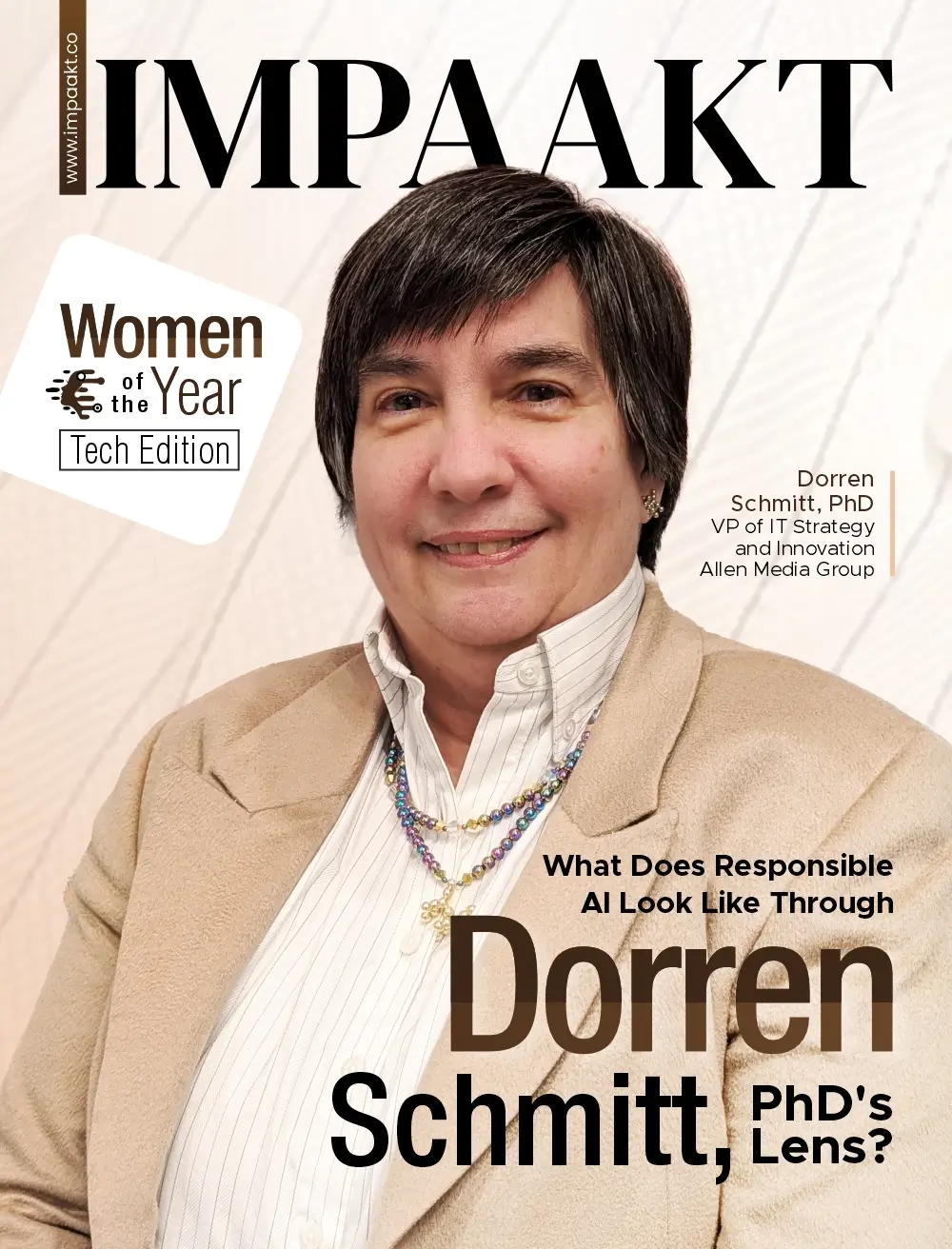The most dangerous phrase in higher education today isn’t “we can’t afford it” or “students won’t adapt”—it’s “we’ve always done it this way.” While institutions worldwide grapple with digital transformation, shifting demographics, and evolving industry demands, the leaders who truly reshape the landscape are those bold enough to tear down outdated systems and rebuild them from the ground up.
Rebecca Carter has made a career of doing exactly that. At 16, standing in her hometown university’s registrar office, she made a declaration that would define the next three decades of her life: she wanted the kind of respect that comes from being indispensable to an institution’s success. What followed was an extraordinary journey across continents—from the bustling academic corridors of Dubai to the challenging terrain of Afghanistan, where she founded the American University of Afghanistan’s registrar office, to the innovative halls of New Uzbekistan University, where she now directs quality assurance and accreditation.
But Rebecca’s story isn’t just about geographical mobility; it’s about intellectual courage. In a field often paralyzed by bureaucracy, she has consistently chosen trust over control, innovation over tradition, and people over processes. Her leadership philosophy—hire exceptional talent, trust them completely, then get out of their way—has transformed every institution she’s touched. She doesn’t just ensure quality; she redefines it, balancing the need for both rigorous education and inclusivity, while embracing technology without losing the human touch.
Today, as artificial intelligence reshapes classrooms and global connectivity redefines campus boundaries, Rebecca stands at the forefront of a revolution. She’s proving that the future belongs to leaders who can balance compliance with creativity, who can build systems robust enough for international standards yet flexible enough for local innovation. At New Uzbekistan University, she’s not just meeting accreditation requirements—she’s rewriting the playbook for what 21st-century higher education can achieve.
Fascinated by her unconventional approach to traditional challenges and her remarkable ability to build excellence from scratch across diverse cultures, we delved deep into conversation with Rebecca to uncover the principles driving her transformative leadership.
Below are the excerpts from the interview:
Rebecca, with over 24 years of experience across academic administration, student services, and IT management, how would you describe the defining moment that shaped your journey into higher education leadership?
I grew up in a university town, just steps away from campus, and from an early age I saw working at a university as something to aspire to. When I began my undergraduate studies, the Registrar at my university left a lasting impression on me. She was respected by faculty and students alike, sought after for her advice, and seemed to hold the trust of the entire institution. At just 16 years old, I thought to myself, “I want that kind of respect.”
Twenty-five years later, I found myself in Dubai, serving as an academic advisor, and six years after that I became the founding Registrar of the American University of Afghanistan—fulfilling the ambition I had carried with me since my student days.
Leading in international and intercultural environments often brings unique challenges—what has been your most valuable learning from working across diverse academic landscapes?
People are much the same everywhere in the world. While structures and work styles may differ depending on cultural or professional background, at the core, everyone seeks the same things: respect, fair compensation for good work, and equity. From Africa to the Middle East to Central Asia, I have seen that when people are treated fairly, they respond with trust and respect in return.
Quality assurance in education often involves tough decisions. How do you ensure the right balance between compliance, academic freedom, and innovation?
Quality assurance in higher education is about finding the right balance between structure and creativity. I see compliance with accreditation standards as the foundation that builds trust and credibility, but I also believe academic freedom must remain central to teaching and research. By embedding continuous improvement processes, I encourage faculty to innovate—whether through new pedagogies, curriculum design, or research initiatives—while ensuring accountability and student success. In this way, quality assurance serves not as a restriction, but as a framework that supports both excellence and innovation.
What steps are you taking at New Uzbekistan University to not just meet accreditation standards, but to raise the bar for what quality higher education should look like in this decade?
I view accreditation standards as a baseline rather than an endpoint. Beyond compliance, I focus on building a culture of continuous improvement—using data analytics to track student learning outcomes, fostering faculty development in innovative pedagogy, and embedding equity and student well-being into our measures of quality. I also emphasize global benchmarking, drawing from best practices across regions to ensure our programs are competitive internationally. By doing this, we not only meet requirements but also set higher expectations for what quality higher education should look like in the years ahead: rigorous, inclusive, and future-focused.
You’ve led technology-driven initiatives throughout your career. What role do you see technology playing in transforming student experiences and institutional effectiveness in the coming years?
Technology is no longer just a support tool—it is central to how students learn and how institutions operate. I see it transforming the student experience through personalized learning platforms, data-informed advising, and accessible digital resources that expand equity and inclusion. For institutions, technology enables more effective decision-making through integrated data systems, streamlines administrative processes like registration and records, and strengthens accountability through transparent reporting. Looking ahead, the real opportunity is in using technology not only to improve efficiency but also to create more engaging, student-centered learning environments that prepare graduates for a rapidly evolving world.
But technology must be guided carefully. We need to safeguard student data privacy, maintain academic integrity in an era of AI-assisted learning, and avoid over-reliance on tools that could replace—not enhance—human judgment. For me, the key is balance: leveraging technology to expand access, improve institutional effectiveness, and enrich student experiences, while putting in place policies, training, and ethical frameworks that ensure technology supports—not undermines—the mission of higher education.
AI and digital tools are rapidly reshaping education. In your view, where should higher education draw the line between leveraging technology and preserving human-centered learning?
AI and digital tools offer powerful ways to personalize learning, improve access, and streamline institutional operations, but higher education must remain fundamentally human-centered. Technology should enhance, not replace, the relationship between faculty and students, which is at the core of critical thinking, mentorship, and ethical development. The line is drawn where efficiency threatens to erode engagement, or where data-driven decisions overshadow the human judgment that defines good teaching and academic leadership. Used wisely, AI can support faculty, empower students, and strengthen institutions—while preserving the human connections that make higher education transformative.
You’ve emphasized the importance of inclusive education and cross-cultural engagement. How do you ensure inclusivity is not just a policy but a lived experience for students and staff?
For me, inclusivity goes beyond written policy—it must be embedded in daily practice. That means designing curricula that reflect diverse perspectives, ensuring support services are accessible to all students, and creating spaces where different voices are genuinely heard and valued. I also emphasize faculty and staff development in cultural competency, so inclusivity is modeled in classrooms and offices, not just discussed in strategy documents. Regular feedback from students and employees, coupled with data on access and outcomes, helps us identify gaps and make adjustments. In this way, inclusivity becomes a lived experience that shapes the culture of the institution, not just a statement on paper.
What advice would you give to young women aspiring to build leadership careers in higher education?
Don’t try to “boss”; lead. Know enough to understand the full scope of your team’s work, even if others have deeper expertise in specific areas. Be thoughtful about whom you hire and surround yourself with—choose people who are both competent and able to thrive under your leadership style. As I often say, “if you hire good people, trust them, and give them the freedom to do their jobs, they will not only perform well but also feel truly valued.”
Effective leadership also means knowing how to delegate—assigning tasks to the people whose strengths best align with the work. You cannot and should not try to do everything yourself. Instead, empower your staff, help them develop as leaders, and give them the tools to inspire their peers and move the institution forward.
Looking ahead, what legacy do you hope to leave behind—not only at New Uzbekistan University but in the broader higher education landscape?
Looking ahead, I hope my legacy will be building institutions where quality, integrity, and inclusivity are not just policies but lived realities. Across my career—from founding Registrar roles to leading academic administration and quality assurance—I’ve focused on creating systems that are transparent, fair, and student-centered. I want to be remembered for helping shape universities that give students the tools to thrive, while also empowering faculty and staff to lead with confidence and purpose. Most of all, I hope my work demonstrates that good governance, respect, and trust can transform higher education into a force for equity and social progress.
To be designed separately
More about Rebecca Carter:
Rebecca Carter is a seasoned higher education leader with over 24 years of experience spanning academic administration, student services, IT management, and strategic project leadership. She has driven institutional growth and student-centered outcomes across diverse international landscapes, leading transformative initiatives that blend operational excellence with innovation. Known for her strategic, collaborative approach, Rebecca excels at streamlining academic processes, implementing technology-driven solutions, and fostering inclusive, globally minded academic communities. Her career reflects a deep commitment to advancing institutional effectiveness, equity, and the future of higher education.











